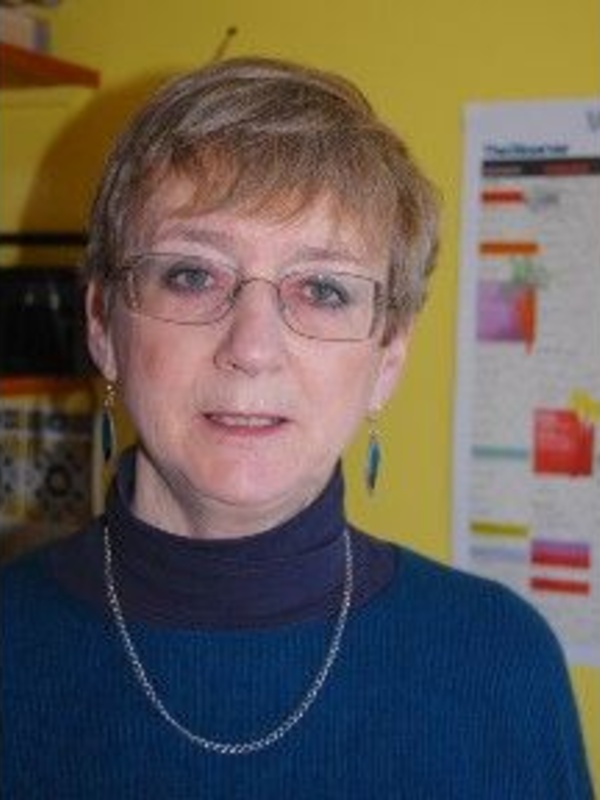Professor Alison Sinclair
- Professor Emeritus of Modern Spanish Literature and Intellectual History (retired 30 September 2014)
- Formerly: Head of the Department of Spanish and Portuguese and Chair of the MML Faculty Board.

Contact
About
Alison Sinclair is Professor Emeritus of Modern Spanish Literature and Intellectual History, University of Cambridge, and Fellow of Clare College Cambridge. Over her career she has mainly specialized in work on the literature, culture and history of Peninsular Spain in the nineteenth and twentieth centuries. Much of this work has been with reference to popular literature and to the press and has sought to establish the multiple nuances of influence, stimuli and interactions between these areas and a more formally recognized canon of Spanish literature.
She has worked and supervised on a broad spectrum of authors and topics and her current focus on popular culture of the eighteenth and nineteenth century in Spain, specifically on pliegos sueltos, constitutes a return and an expansion of earlier interests, and takes such work forward with the support of digital humanities.
Research
Professor Sinclair was awarded £600,765 by the AHRC for a three-year project (2011-14) on ‘Wrongdoing in Spain 1800-1936: Realities, Representations, Reactions’. The intention was to explore society’s understanding of wrongdoing, and the way that this was translated into the world of culture. It was thus concerned not just with wrongdoing, but with the social and cultural responses it elicited. Such responses were deemed to include anxiety, anger, desire for retribution, identification with perpetrators or victims of wrongdoing, the potential for vicarious engagement with wrongdoing through cultural artefacts.
The project allowed for questioning of the processes through which it was evident that we, as cultural consumers, take a type of pleasure in wrongdoing. The manifest public fascination in the topic was one that could be traced from medieval ballad through to nineteenth-century broadsides, and eventually to sensationalist literary or visual representations of wrongdoing in our day. This research project featured in a University News article on Research News: 'Read all about it!'. The project held two conferences, four workshops, and numerous events of public engagement, including an exhibition at the University Library, Cambridge, accessible online at https://exhibitions.lib.cam.ac.uk/wrongdoing/. It also published two collections of articles, Heroes of Wrongdoing (2017) and Writing Wrongdoing (2017).
Part of the work of the project was the digitization and cataloguing of 4,700 items of ephemeral and popular literature held at the University Library and the British Library.
‘Wrongdoing in Spain’, and specifically the work on ephemeral literature (pliegos sueltos), catalogued by Ms Sonia Morcillo, and digitized by a team at Cambridge University Library, gave rise to an international project (2014 to present). This is ‘Mapping pliegos’, directed by Professor Sinclair with Professor Pura Fernández (Madrid: CSIC) and Professor Juan Gomis (Valencia).
Mapping pliegos aims to extend the work on ephemeral literature in ‘Wrongdoing in Spain’ to compile a reliable and complete catalogue account of Spanish pliegos sueltos, including holdings in major Spanish libraries and archives. The number of sueltos currently collected stands at some 12,000 items. The major initial work of compilation has been carried out by a team working between England and Spain, and the project is engaged in the task of checking the records and ensuring standardization of practice in the cataloguing. To this end there is collaboration between Ms Morcillo at the University Library and Dr Pilar Martínez Olmo of the Biblioteca Tomás Navarro Tomás at the CSIC in Madrid and includes the training and guidance of young researchers.
There is an international advisory board, four international workshops were held (Madrid (2014), Urueña (2015), Madrid (2016) and Valencia (2017), and the group collaborated with the EDPOP (European Dimensions of Popular Culture) based in Utrecht (2016-18). A further project of one year (2021-22), funded by the Cambridge Humanities Research Grant Scheme on dating sueltos in the Cambridge Digital collection uses image recognition and visual search software to improve and refine the dating given to this material.
Published works:
Her publications include articles on specific authors of the modern period, primarily with a psychoanalytic focus, and on the intellectual history of the early twentieth century. Her publications include Valle-Inclán’s ‘Ruedo ibérico’: a popular view of revolution (1977), Madrid Newspapers 1661-1870: a Computerized Handbook (1984), The Deceived Husband (1993), Dislocations of Desire: Gender, Identity, and Strategy in 'La Regenta' 1998), Unamuno, the Unknown, and the Vicissitudes of the Self (Manchester UP 2001), Sex and Society in Early Twentieth-Century Spain: Hildegart Rodríguez and the World League for Sexual Reform (2007), Trafficking Knowledge in Early Twentieth-Century Spain: Centres of Exchange and Cultural Imaginaries (2009) and Putting it About: Social Rights and Wrongs in Spain in the Long Nineteenth Century (2019). She is currently editing a collection of articles on Hispanic cultures of the popular.
